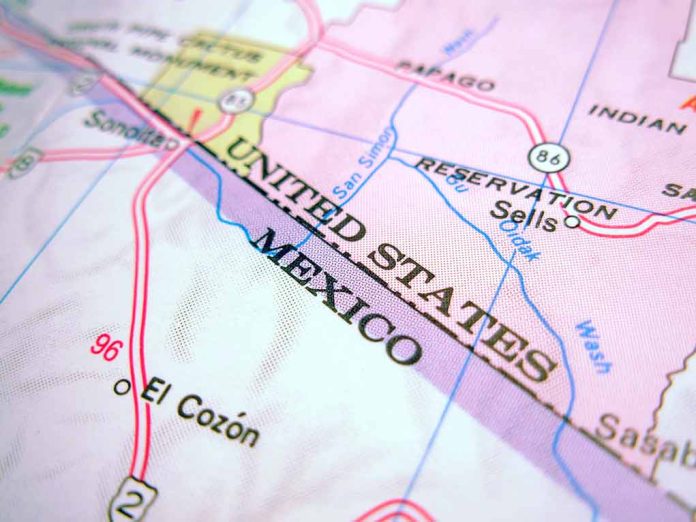
The escalating influence of Mexican drug cartels on border security and the judicial system raises serious questions about both countries’ futures.
At a Glance
- Mexico’s new judicial reform could increase cartel influence over legal proceedings.
- Recent changes allow cartels to sway judicial elections, impacting independence.
- Cartels control migrant routes, complicating U.S. immigration policies.
- Critics warn that democratic institutions in Mexico are under threat.
Judicial Reform Sparks Controversy
Mexico’s Senate recently passed a reform permitting judges to be elected by popular vote, stirring controversy and sparking widespread protests. Critics argue that this change weakens traditional checks and balances, potentially boosting the Morena party’s power at the judiciary’s expense. Concerns also include provisions for “faceless” judges, which could undermine fair trials. U.S. Ambassador Ken Salazar noted the impact on Mexico’s democratic stability, fearing cartels will wield newfound power in influencing legal outcomes.
This reform represents a significant victory for President López Obrador, known for his confrontations with the Supreme Court. The potential for cartels to sway judicial elections has become a critical point of contention. Opponents argue the change marks a severe reduction in judicial independence, lamenting a new era where anyone with a law degree can become a judge, if popular choice dictates. This has raised grave concerns among various sectors.
Mexico faces multiple challenges—from corruption to cartel violence to drug trafficking—that intersect with and amplify each other. But is there anything US policy can do to help Mexico's government address these problems? https://t.co/f9VQ60b3kT
— Modern War Institute (@WarInstitute) November 8, 2024
Cartel Influence on Migrant Movements
Migrants traveling through Mexico face significant threats from drug cartels, overshadowing the control exerted by Mexican federal agents and the National Guard. As Reverend Heyman Vázquez describes, “It’s them (the cartel) that says who passes and who doesn’t,” highlighting the extensive control cartels have over migrant routes. These criminal organizations employ strategies such as extortion, kidnapping, and even holding migrants captive until paid a ransom, severely disrupting their journeys along the Mexico-U.S. border.
Organizations attempting to provide aid and support to these vulnerable travelers often face intimidation or outright violence from these cartels. The cartels’ control extends to their capacity to intimidate voters and finance judicial candidates who align with their interests. This reality sharply contrasts with the capabilities of state security forces, who struggle to gain authority over these corridors of crime.
Implications for U.S.-Mexico Relations
The recent legislative changes in Mexico highlight a growing threat to judicial independence and democracy. Critics caution that the consolidation of power under the ruling Morena party removes merit-based appointments, risking potential corruption and influence from organized crime elements like the drug cartels. Judicial independence is crucial for upholding democratic principles and protecting the impartiality of the judiciary system.
The independence of the judiciary is not just a concern for Mexico but also for U.S. interests, with cartels already affecting migration and drug trafficking control strategies. From a U.S. perspective, these developments necessitate a reevaluation of policies and strategies at the border, involving closer cooperation with Mexican authorities to mitigate cartel influence and ensure that rule of law prevails on both sides.
As these challenges grow, conservative values emphasizing national security and rule of law become even more critical in addressing the balance of power between the U.S. and Mexico. The potential for drug cartels to further permeate political and legal systems could have dire consequences for bilateral relations, necessitating immediate action to restore stability and integrity at the border and beyond.














